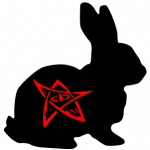
Writing The Red Door has forced me to examine feminist issues I normally take for granted. There are a few pieces, like sexuality, which are embedded beneath the plot. Or, in other words, it’s not a story about feminist issues but I felt forced to address them because of the story. And that, as they say, is all I’ll say about the writing portion.
One of the issues that came up is the difference between what we, women, feel we have to do to make ourselves attractive to the opposite (or even same) sex in a traditional sense. And, on the flip side, what we stereotype or envision our potential partner feels is attractive.
Sexuality? Really? Yes, really. This is often where I feel the arguments for/against make-up, for/against dressing in revealing clothes, for/against wearing something other than sweat pants all day comes into play. And, many times, it’s based on stereotypes of mate attraction rather than what women really dress up for. It’s a fascinating issue, really, which is part of why I’m exploring this with you today. (Please understand, too, that I’m *trying* my best to not define a woman’s sexuality as “just” woman-man here. I may not have succeeded in all concepts, so forgive me.)
When I was younger, sure, there was the recommended attire to go out to a bar. Girls would wear the black body suits and tight jeans; the guys would wear flannel or polos. Sometimes I went with the flow; often I didn’t. Now-a-days it’s the daily wear of Ugg boots with the sweat pants or tights tucked in and the baggy sweatshirts and the variety of 80s or vintage attire — but almost always, almost always, clothing had something to do with how visible one was to a potential mate and what social tier/group/class you belonged to. For me, the only uniform I have now is the one I put on because I want to. (Once I figured that out, it was very freeing to be able to do that in all situations.) Mind you, I still consider myself to love fashion, perhaps even more than most, because if I gotta wear clothes, might as well like and appreciate ’em — especially the ones I feel look good on me.
As I write this story, I’m also exploring the possibility that for some? Clothing is also worn as a shield to avoid getting hit on, to be protected from potential threats. (For example, when I used to drive alone at night, I’d often wear a baseball cap to hide the fact I was female.) In some cases, yes, women are afraid and I think it’s something that isn’t really talked about very often. I feel this underlying fear is what’s causing new and interesting discussions of sexual harassment — sometimes at cons, sure, but also at work and whatnot. How scary is it, after all, to be in a position where you could die if you didn’t abort and be told that you have no control over your own body? (That happened not too long ago, too.) How frightening to think that you’ll be labeled a whistle-blower and unhireable because you didn’t want to constantly hear about how tight your abs were? Or how big your boobs were? Or how you weren’t attractive enough?
I have to wonder if the issue is exacerbated by the social acceptance that comes from sexy women’s attire/poses often lauded in the media. We see people whose careers are based on how in shape they are; so many believe that they have to be them in order to be attractive or desirable. (Which isn’t realistic at all.) So some women just give up after a while because they don’t have to dress up anymore; they have a husband or wife, right? They had the career and maybe they’re working-from-home now. (Mind you, what clothing women wear is cultural, too, depending upon where you live in the country and in the rest of the world.) Well, they got their “mate” and now they don’t have to dress to impress anymore. Or maybe they’re too tired to always dress up or nicely (a sign of depression/low self-esteem in some cases). Or they can’t afford good-fitting clothes. Or they are too proud to fit their current body shape.
The idea that clothing is worn specifically to attract a mate is very interesting to me from a storytelling perspective. We’ve lost a lot of other “mating rituals” over the past century. I think one of the ones that survived is the “ring” in the sense that it’s a promise of a deeper commitment, but there really isn’t anything outside of that to my recollection and even that’s not a requirement anymore. Still, wearing an outfit “to” signal you’re available fascinates me — because that’s assuming a LOT about women and a LOT about potential partners, too — especially since the “rules” of what’s proper to wear are so relaxed now. Remember, jeans started out as tent material and were only worn on farms. Sweatpants were for sweatin’ in. Not anymore!
Makes you think, doesn’t it? Why women wear what we do and how it relates to what we feel about ourselves, the Tango of Looooove, and social pressure? Be interesting to hear your thoughts, below. If we get a good discussion going, I’ll follow-up with another post about this.
Cheers!
- Mood: Back hurty.
Caffeinated Beverages Consumed: Caffeinatin’ on up!
Work-Out Minutes Logged Yesterday: A walk. Some necessary housework.
In My Ears: Body Paint from the Buffy soundtrack.
Game Last Played: Dragon Age: Origins
Movie Last Viewed: Spiderman the new one.
Latest Artistic Project: In progress!
Latest Release: “Fangs and Formaldehyde” from the New Hero anthology through Stone Skin Press

